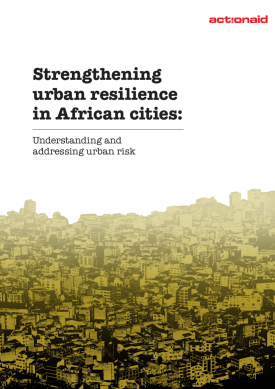Strengthening urban resilience in African cities: Understanding and addressing urban risk
Author: Robyn Pharoah/ActionAid
The population of Africa’s cities is growing rapidly. But as poor people cram into towns and cities characterised by limited, weak and often under-resourced infrastructure, they are increasingly relegated to marginal, inadequately serviced, informal settlements and low-cost housing areas, leaving them vulnerable to numerous livelihood, health and security risks.




